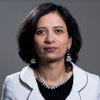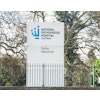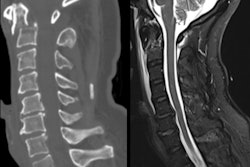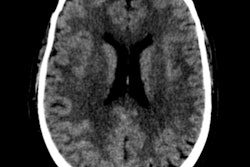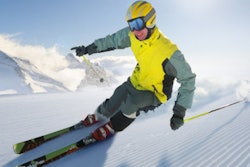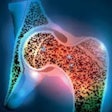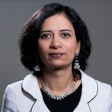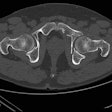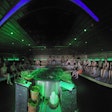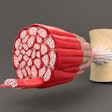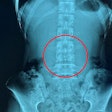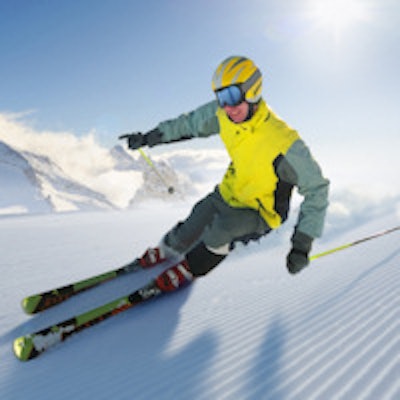
In a refreshing opportunity to promote medical imaging, radiographers as well as radiologists are being given notable opportunities to experience what the 2014 Winter Olympics have to offer. Sevda Mamedova, a radiographer from the Federal Center of Rehabilitation and Treatment in Moscow, received personal training at the Olympics Beta Clinic nestled within the Sochi mountain cluster of Krasnaya Polyana. She is also spending time at the cutting edge of the radiology service, and has been drafted to help operate the service during the next two weeks.
Mamedova has helped local medical specialists to prepare scanning protocols specially designed for fast and reliable detection of sports injuries. "First of all, we had to prepare ready-to-use sets of optimized MR protocols for imaging of joints, muscles, brain, spine, abdomen, and pelvis," she said.
 Sevda Mamedova aims to fly the flag for radiographers during the Sochi Olympics.
Sevda Mamedova aims to fly the flag for radiographers during the Sochi Olympics.
In part, driving her interest and presence at the games, Mamedova is strongly motivated in trying to progress and promote the profession of radiography. In 2012, she won a national competition called "The Best Radiographer," and last year she received an offer from GE Healthcare to visit Sochi to attend a short course on how to use the company's brand-new MRI scanner.
"Many people mistakenly think that nothing important depends on radiographers, but I have a completely different opinion," she said. "Quite often it is a radiographer who chooses the best way to perform an imaging examination, helping the radiologist to make a correct and timely diagnosis. As all of us know, correct and quick diagnosis is a key to successful treatment of a patient."
The Winter Olympics will involve upwards of 2,800 athletes from a record 88 nations, and runs from 7 to 23 February. Before the start of the games, Mamedova received training on a special mobile GE Signa HdxT 1.5-tesla MRI scanner. In addition, GE is providing the Sochi Polyclinic with imaging technology including a CT scanner and ultrasound, digital radiography, and monitoring systems to aid in early diagnosis and treatment of elite athletes.
The city of Sochi lies on the Black Sea coast of Russia, with many events held high in the local mountain resort. Such a relatively inaccessible location meant that transfer of the radiology equipment presented its own set of challenges, before the inevitable task that lay ahead with installation and operation. The MRI system was transported uphill along a difficult, meandering road. Witnesses of this spectacular event were very impressed with the great skill of the driver, she remarked.
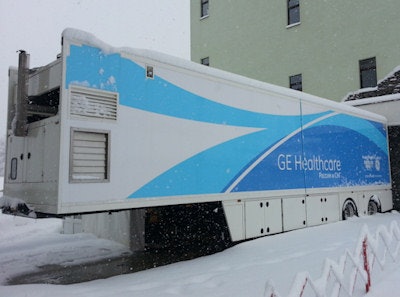 GE Healthcare has provided imaging equipment for the Winter Games. Image courtesy of Sevda Mamedova.
GE Healthcare has provided imaging equipment for the Winter Games. Image courtesy of Sevda Mamedova.Once in place, training for the Winter Games demanded that radiographers and radiologists had a thorough understanding and readiness in treating a range of sports injuries typical of winter sports, including muscle sprains and strains, tears of tendons and menisci, and bone trauma, as well as spine, head, and neck injuries.
Sochi's medical team
The total medical service at the 2014 Olympic Games is vast, constituting about 1,500 medical staff across all therapy areas, with most staff being sourced from within Russia itself. Dr. Peter Lidov is a Russian surgeon who has an accomplished history in sports medicine and recently set up Russia's Scientific and Practical Institute of Extreme Medicine and Biology.
 Dr. Peter Lidov, an experienced surgeon in sports medicine, has worked directly with the Medical Commission of the Russian Olympic Committee.
Dr. Peter Lidov, an experienced surgeon in sports medicine, has worked directly with the Medical Commission of the Russian Olympic Committee.
For the Sochi Olympics, he worked directly with the Medical Commission of the Russian Olympic Committee. He noted that all the clinicians working at the polyclinic are drawn from specialist units based at Russian hospitals, but participants received targeted training for the Winter Olympics to expand upon their specialist therapeutic skills and knowledge base.
He explained that a specific feature of the training was in the consolidation of emergency aid skills, including resuscitation measures in the event of cardiac arrest. A number of action plans for duty emergency teams at various competition venues and for air ambulances also have been carefully developed by Lidov and his colleagues.
"Duty doctors in sports locations have to have skills specific to their working conditions. For example, at skiing locations, it is essential to be able to ski in order to help accident victims quickly," Lidov said. "On the ice rink, the doctors are trauma and ENT specialists, etc."
Asked about the infrastructure of the Winter Olympic medical service, Lidov noted that the radiology service would be used in a diagnostic capacity for injury and formed part of the more extensive Sochi city health system.
"Currently, Sochi and the surrounding cities have a network of facilities designed for large numbers of patients. At today's large-scale events, it is customary to provide highly qualified medical assistance to large sections of the population," he said. "These centers are equipped with modern radiological equipment, computer and magnetic resonance tomography, and expert ultrasound equipment. All of this is already in place."
Russian patriotism and practice of medicine
The Russian people are nothing if not patriotic. There is a clear sense of this from both Mamedova and Lidov. However, Lidov highlights that a highly developed sense of objectivity and neutrality is essential for the practice of medicine despite being surrounded by an extremely competitive cohort of patients at the games.
"The Olympics are a great international event," he said. "We doctors are of course citizens of our own countries, but we take an overall international view that the race, nationality, beliefs, political allegiance, profession, gender, and age of the patients we treat are immaterial."
He continued by reflecting on the outside influences on sports today, adding that he was concerned by the increasing influence of politics in sports generally, including the Winter Olympics, and the huge amounts of money invested in the games.
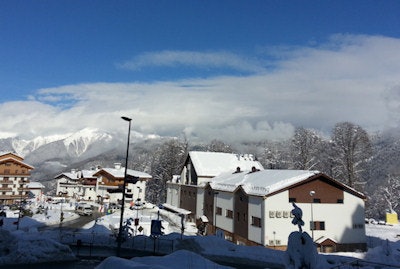 About 1,500 medical staff across all therapy areas will be working in the polyclinic at the Winter Olympics. Image courtesy of Sevda Mamedova.
About 1,500 medical staff across all therapy areas will be working in the polyclinic at the Winter Olympics. Image courtesy of Sevda Mamedova."These aspects need to be handled carefully. It's a very dangerous trend, which could undermine the whole raison d'être of any Olympic Games," he said.
Indeed, in view of these concerns, he stressed that they gave even greater emphasis to the moral underpinning of the medical service at the games.
"We doctors have always striven to ensure that we have sufficient heart, soul, and knowledge to allay any fears that athletes and spectators alike might have concerning their health," he said.
Likewise, Mamedova is as dedicated to her country as she is to her profession, pointing out that she was proud to be part of the Sochi Olympics, and naturally wanted her country to scoop a plethora of medals and victories.
"But of course we must remember that the primary goal of every Olympic Games is promotion of health, peace, and friendship all over the world," she said.
Editor's note: Syntacta Translation and Interpreting assisted with the translation of Dr. Lidov's replies to our questions.


